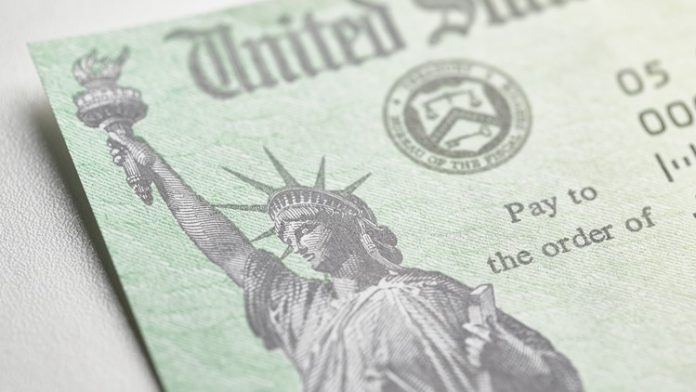As Democrats push forward with crafting the next massive coronavirus economic relief package, key details surrounding the third stimulus check are coming into focus.
Taxes are going to be huge in determining who gets money from the third round of economic impact payments. The first two coronavirus stimulus checks were connected to tax returns and it is recommended that you file your 2020 taxes as early as possible.
It’s important to remember that there could still be changes to the stimulus package before it’s passed by the House and Senate. So, the following information is based on the parts of the COVID-19 relief plan that have been approved by House committees so far.
Will the third stimulus be tied to my 2019 or 2020 tax returns?
As of mid-February, the country was still waiting on lawmakers to iron out some of these details, but the basic answer to the question depends on how quickly you get your taxes filed this year.
House Speaker Nancy Pelosi has said the goal is to have a COVID relief package on Biden’s desk by March 14. That is the deadline for when jobless benefits will begin expiring.
That date also impacts the next round of stimulus payments because it’ll be right in the middle of tax filing season, which began Feb. 12 and runs through April 15.
Under the current bill, the IRS would go with the most current return they have on file. If 2020 taxes have been filed at that time, they will go with the address, amount and money disbursement method the agency has on file for the taxpayer.
How much is the next stimulus check expected to be?
As of Feb. 15, language in the “Promoting Economic Security” text from the House Ways and Means Committee would send $1,400 as a refundable tax credit.
Someone who filed a return individually who makes up to $75,000 would get the full $1,400. Under the current proposal, the amount for the third stimulus check would be phased out, reaching zero at $100,000. Couples filing jointly would get a total of $2,800 if they made up to $150,000. It would again be phased out to zero at $200,000 jointly. But as of mid-February, these numbers are not set in stone and the threshold could be lowered when the final bill is passed.
This is why the timing of your tax return is key. If you made above the threshold in 2019 but fell below it in 2020, you’d want to file your tax return as soon as possible to get the full stimulus payment. But if the opposite is true — if you made above the threshold in 2020 but were below it in 2019 — you may want to wait a little bit.
But, what if you had a baby in 2020? The proposal from the House Ways and Means Committee gives $1,400 for each dependent. So if you welcomed a child in 2020, but your stimulus payment is going off your 2019 taxes, you might miss out if you wait to file your return.
Under the current plan, if the third stimulus payment amount you receive winds up being based off your 2019 taxes but you should have gotten more based off your 2020 taxes, you can claim the difference on your 2021 tax returns. But in that case, you could have a long wait ahead.
Why else should I file my 2020 tax return early?
If you don’t have direct deposit information filed with the IRS, filing your taxes can allow you to get that set up. You’re likely to get your stimulus payment faster through direct deposit than waiting for a physical check in the mail.
Beyond the stimulus, getting your 2020 return in early means you’ll get your refund back faster if you are due one. The IRS says those who file their returns online and are signed up for direct deposit generally get their refunds back within 21 days.
Another reason to get your taxes in sooner rather than later is security. Hackers and scammers — if they are able to get a hold of your personal information including your social security number — may be able to claim your refund before you do.
What if I didn’t receive a first or second stimulus check?
The IRS will be working through getting past economic payments paid out during this time as well. The agency has a tool on its website so that taxpayers can claim missing stimulus payments they were owed.
If your first or second stimulus check never arrived, the IRS says to go to its Recovery Rebate system. First you must file your 2020 tax returns, even if you are not required to file. Then you will need to know the amount you were owed.








